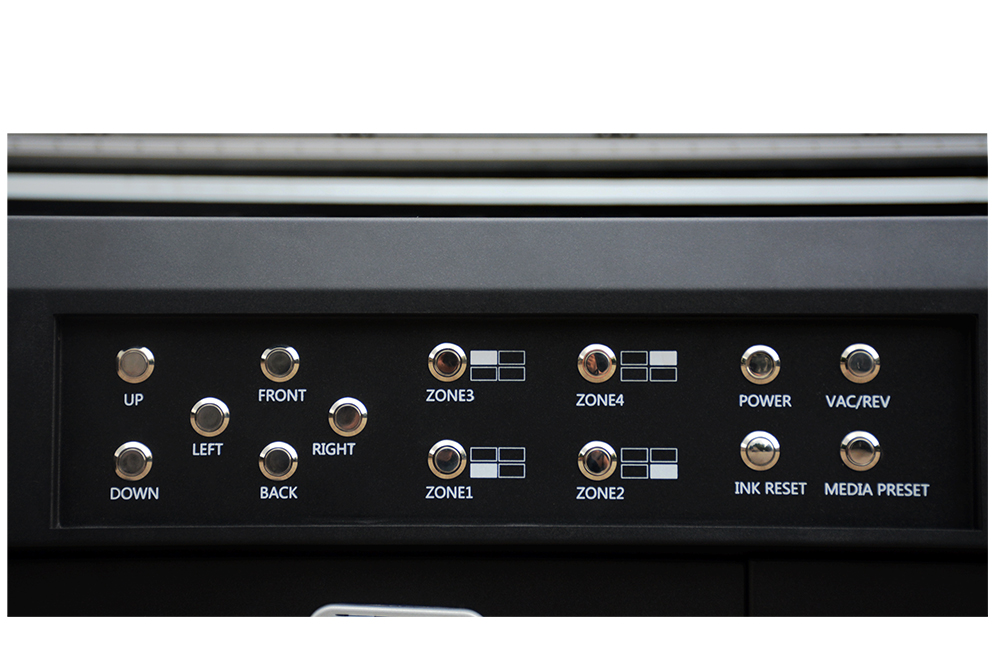UV Flatbed Printer: The Advantages of a Modular Design
UV Flatbed Printer: The Advantages of a Modular Design
In the rapidly evolving field of digital printing, UV flatbed printers have emerged as a game-changer, revolutionizing the way industries approach surface decoration and functional printing. Among the various design philosophies that underpin these machines, modular design stands out as a significant advantage. This article delves into the merits of UV flatbed printers with modular designs, exploring how they enhance flexibility, scalability, ease of maintenance, and overall efficiency in printing applications.

Understanding UV Flatbed Printers
UV flatbed printers are advanced printing systems that utilize ultraviolet (UV) curing technology to instantly dry ink onto a flat surface. This technology allows for precise and vibrant printing on a wide range of materials, including plastics, glass, metal, wood, and more. Unlike traditional printing methods, UV flatbed printers can produce high-resolution images with intricate details, making them ideal for applications such as product labeling, packaging, promotional items, and even industrial parts marking.
The Concept of Modular Design
Modular design is an approach to product development where a system is divided into separate, interchangeable modules or components. Each module serves a specific function and can be independently replaced, upgraded, or customized without affecting the entire system’s operation. This design philosophy promotes flexibility, adaptability, and ease of maintenance, making it highly suitable for complex machinery like UV flatbed printers.
Advantages of Modular Design in UV Flatbed Printers
1. Enhanced Flexibility and Adaptability
One of the primary advantages of a modular UV flatbed printer is its ability to adapt to changing printing needs. Different industries require printing on various materials and sizes, necessitating a printer that can accommodate such diversity. A modular design allows for easy swapping of components, such as printheads, ink systems, or even the printing bed itself, to suit specific printing requirements. This flexibility ensures that the printer can handle a wide array of jobs without the need for costly and time-consuming overhauls.
2. Scalability and Future-Proofing
Modular design also facilitates scalability, allowing businesses to start with a basic configuration and gradually upgrade as their needs grow. This approach minimizes initial investment while providing a clear path for expansion. As new technologies emerge, such as faster printheads or more efficient UV curing systems, these can be seamlessly integrated into the existing printer infrastructure, ensuring that the equipment remains up-to-date and competitive.
3. Simplified Maintenance and Repair
Maintenance and repair are critical aspects of any industrial machinery, and UV flatbed printers are no exception. A modular design simplifies these processes by enabling targeted interventions. In the event of a malfunction or wear, only the affected module needs to be replaced or repaired, reducing downtime and costs. Moreover, modular designs often incorporate easily accessible interfaces for routine maintenance tasks, further streamlining operations.
4. Faster Time-to-Market
For businesses, time-to-market is a crucial factor. Modular UV flatbed printers can be configured and reconfigured swiftly, allowing for rapid deployment of new printing capabilities. This agility enables businesses to capitalize on market trends and customer demands promptly, giving them a competitive edge.
5. Cost-Effectiveness
While the initial investment in a modular UV flatbed printer might be slightly higher due to the advanced design, the long-term cost-effectiveness is significantly greater. The ability to upgrade and customize the printer incrementally means that businesses only pay for what they need, avoiding unnecessary expenses. Additionally, the reduced maintenance costs and extended lifespan of modular printers contribute to overall cost savings.
6. Sustainability and Eco-Friendliness
Modular design also aligns with sustainability goals. The ease of upgrading and replacing components means that older, less efficient parts can be swapped out for more eco-friendly alternatives. Furthermore, the longevity of modular printers reduces the need for frequent replacements, minimizing electronic waste.
Case Studies and Applications
Several industries have already embraced modular UV flatbed printers, demonstrating their versatility and effectiveness. In the packaging industry, these printers enable on-demand printing of custom designs, reducing inventory costs and waste. The automotive sector utilizes them for printing serial numbers, logos, and functional markings directly onto components, enhancing efficiency and precision. The signage and graphics industry benefits from the ability to print on diverse materials, including acrylic and PVC, for indoor and outdoor applications.
Conclusion
In conclusion, the modular design of UV flatbed printers offers a multitude of advantages that transcend traditional printing methodologies. From enhanced flexibility and scalability to simplified maintenance and cost-effectiveness, these printers are poised to transform various industries by offering unparalleled printing capabilities. As technology continues to advance, the modular approach ensures that UV flatbed printers remain at the forefront of innovation, catering to ever-evolving market demands and sustainability goals.
